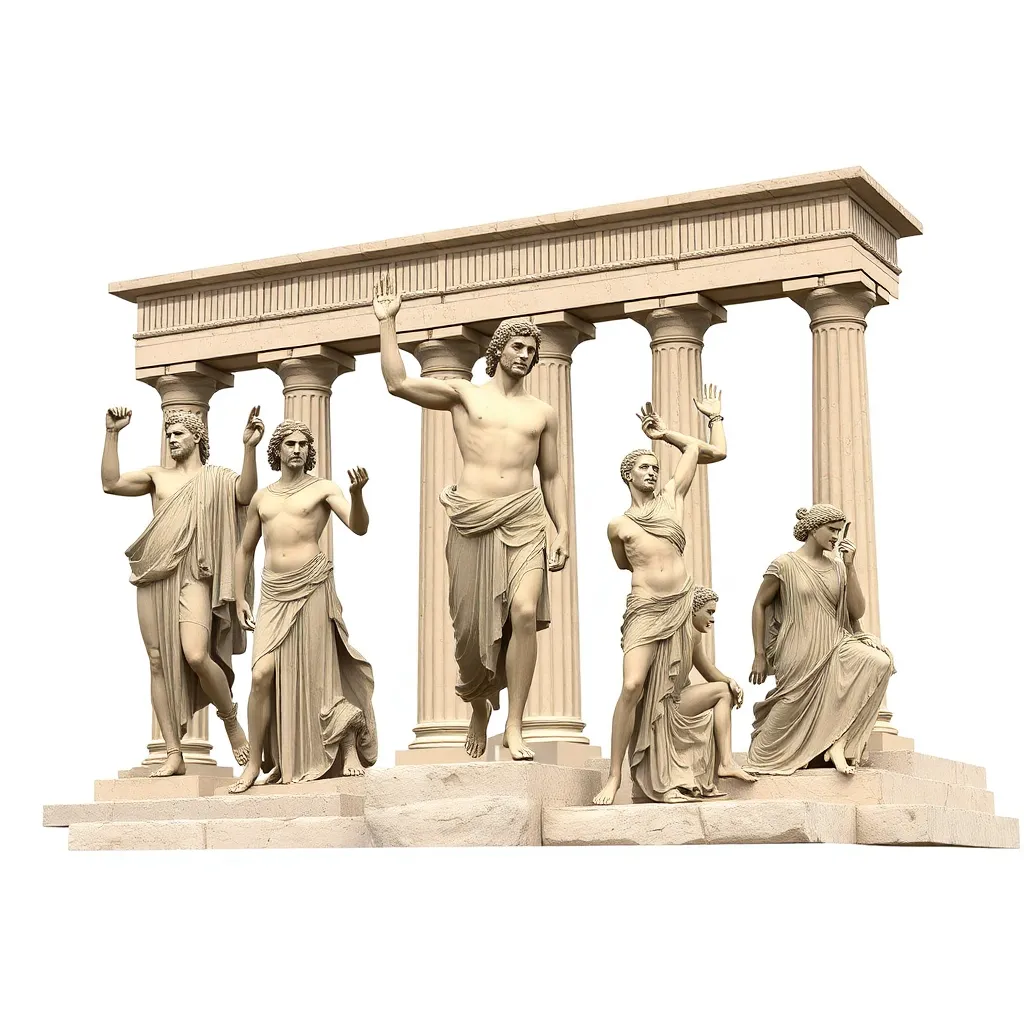The Olympians: How They Were Worshipped in Different Regions of Greece
I. Introduction
Greek mythology is rich and complex, with a pantheon of gods and goddesses known as the Olympians playing a central role in the cultural and spiritual lives of the ancient Greeks. These deities were not only revered for their divine powers but also for their influence over various aspects of life, from warfare to agriculture, and from love to wisdom. The worship of the Olympian gods varied significantly across different regions of Greece, reflecting local customs, traditions, and societal values.
The purpose of this article is to explore the worship practices of the Olympians in various regions of Greece, highlighting how these practices were shaped by local culture and geography.
II. The Twelve Olympians: A Brief Overview
The Twelve Olympians are the principal deities in Greek mythology, each representing different aspects of life and nature. They are:
- Zeus: King of the gods, god of the sky and thunder.
- Hera: Queen of the gods, goddess of marriage and family.
- Poseidon: God of the sea, earthquakes, and horses.
- Athena: Goddess of wisdom, warfare, and crafts.
- Apollo: God of the sun, music, and prophecy.
- Artemis: Goddess of the hunt and wilderness.
- Ares: God of war.
- Aphrodite: Goddess of love and beauty.
- Hephaestus: God of fire and craftsmanship.
- Hermes: Messenger of the gods, god of trade and travel.
- Dionysus: God of wine, fertility, and revelry.
- Demeter: Goddess of agriculture and the harvest.
Each of these gods had specific attributes and symbols, serving as a focal point for worship and devotion among the ancient Greeks.
III. Worship Practices in Athens
Athens, a center of art and philosophy, held Athena as its patron goddess. The Parthenon, a magnificent temple on the Acropolis, was dedicated to her and served as a symbol of Athenian democracy and culture.
The worship of the Olympians in Athens included various festivals and rituals, the most notable being:
- Panathenaea: A major festival celebrated annually in honor of Athena. It included a grand procession, sacrifices, and athletic competitions.
- Thesmophoria: A festival dedicated to Demeter, highlighting the importance of agriculture and fertility.
These events not only honored the gods but also reinforced social cohesion and civic pride among the Athenians.
IV. Worship Practices in Sparta
In contrast to Athens, Sparta emphasized military prowess and discipline, closely associating its worship practices with the gods of war. Ares, the god of war, and Artemis, the goddess of the hunt, were particularly significant in Spartan society.
Unique rites and military festivals in Sparta included:
- Gymnopaedia: A festival featuring athletic competitions and performances, dedicated to Apollo and celebrating the physical prowess of Spartan youth.
- Artemisia: A festival honoring Artemis, emphasizing her connection to nature and hunting, crucial for a society that valued strength and survival.
These practices not only reflected Spartan values but also reinforced the communal identity centered around military excellence.
V. Worship Practices in Delphi
Delphi was renowned for its Oracle, dedicated to Apollo, who was worshipped as the god of prophecy and enlightenment. The site held immense significance for the ancient Greeks, drawing visitors from across the Hellenic world seeking guidance and wisdom.
Sacred rituals at Delphi included:
- The Pythian Games: Held every four years, these games were a celebration of Apollo, featuring athletic competitions, musical contests, and dramatic performances.
- Consultation of the Oracle: Pilgrims would visit the temple to seek prophecies, often delivered by the Pythia, the priestess of Apollo.
The worship of Apollo at Delphi exemplified the Greeks’ reverence for knowledge and the divine insight provided by the gods.
VI. Worship Practices in Olympia
Olympia, the site of the ancient Olympic Games, was dedicated to Zeus, the king of the gods. The games were held every four years and served as a major religious festival, celebrating athleticism and unity among Greek city-states.
At Olympia, the worship practices included:
- Olympic Games: Athletes competed in various sports, including running, wrestling, and chariot racing, as a tribute to Zeus.
- Temples and Altars: Numerous altars and temples were dedicated to different Olympians, reinforcing the significance of divine favor in athletic success.
The Olympic Games not only honored Zeus but also promoted peace and collaboration among the often-warring city-states of Greece.
VII. Regional Variations in Worship
The worship of the Olympians was not monolithic; it varied significantly across different city-states, influenced by local customs and traditions. Some key differences included:
- Rituals and Festivals: Each region developed unique rituals tailored to their societal values. For example, Spartan rituals emphasized military strength, while Athenian practices focused on intellectual and artistic achievements.
- Local Deities: Some regions had local deities that were integrated into the worship of the Olympians, reflecting the blending of local and pan-Hellenic religious practices.
This regional diversity illustrates the adaptability of Greek religious practices and the ways in which local customs shaped the veneration of the Olympian gods.
VIII. Conclusion
The worship of the Olympian gods had a profound and lasting impact on Greek culture and identity. It fostered a sense of community, provided moral frameworks, and offered explanations for the natural and social order of the world.
As we reflect on the unity and diversity of religious practices in ancient Greece, it becomes clear that the Olympians were not merely distant deities but integral figures in the daily lives of the Greeks, influencing their values, traditions, and societal structures.




